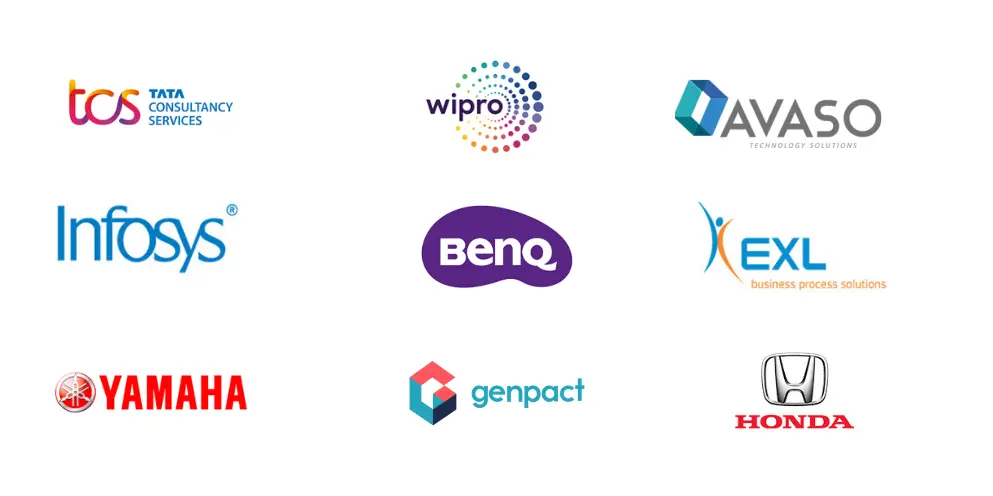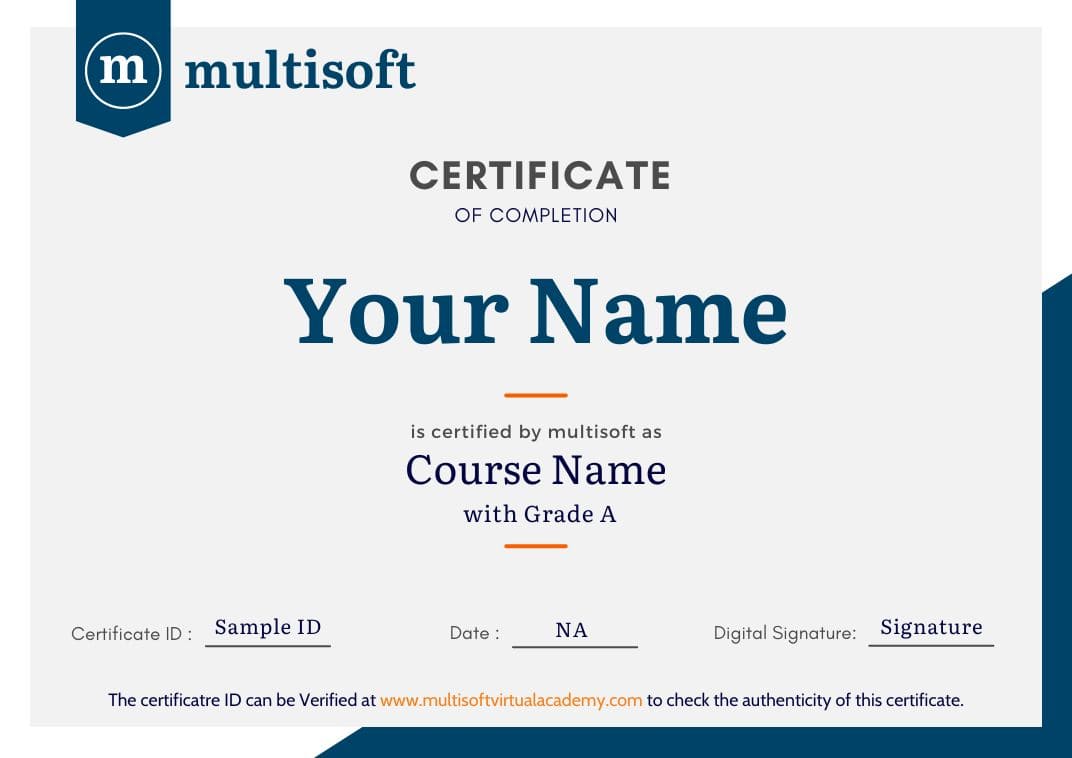Trusted by enterprises across the globe


Designed for all your training needs

Flexible On-Demand Group Learning
Flexible, corporate learning for groups, accessible anytime, anywhere.

Instructor-Led Live, Online Training
Real-time, interactive classes taught by SME via web conferencing.

Independent Self-Paced Learning
Individual learning at your own speed, with access to digital materials.

Customized On-Site Training
Customized, face-to-face training sessions delivered at your location.
Curriculum Designed by Experts
The Distributed Control System (DCS) Corporate Training by Multisoft Virtual Academy equips professionals with the skills to design, operate, and maintain advanced process control systems. This course covers key topics such as DCS architecture, communication protocols, programming logic, and system integration. Participants will gain hands-on experience in configuring controllers, developing HMI screens, and implementing process optimization techniques. Designed for engineers, technicians, and system operators, this training ensures mastery in industrial automation and control, fostering efficiency and reliability in complex industrial processes. Enhance your team’s expertise with our tailored corporate training, blending theoretical insights with practical applications.
Introduction to Computer-Based Control Systems: Explore the fundamentals of control systems that rely on computer technology for monitoring and regulating industrial processes. Gain insight into the principles, components, and applications of computer-based control systems in various industries.
- Introduction to computer based measurement and control systems
- Role of computers in measurement and (process) control
- Basic components of computer based measurement and control systems
- Architecture – computer based process control system
- Human Machine Interface (HMI)
- Hardware for computer based process control system
- Interfacing computer system with process
- Economics of computer based system for industrial application
- Introduction
- Basic concepts of a Distributed Computing System (DCS)
- Evolution of a DCS
- Present market trends in DCSs
- Basic DCS specifications
- General description of a commercial DCS
- Advantage of DCSs
- DCS selection criteria
- DCS architecture
- Introduction
- Basics of SCADA system
- SCADA key features
- Remote terminal units (RTUs)
- Typical requirements for an RTU system
- PLCs used as RTUs
- Consideration and benefits of SCADA system
- DCS versus SCADA terminology
- SCADA software package
- Introduction
- Identification of the controller boards
- Discrete and logic control
- Sequential and batch control
- Historical
- Control modes
- Tracking and initialisation in control slots used for cascade control
- Control functions
- Control algorithms
- Sequential programs for batch processing
- Defining equipment procedures
- Phase logic programming
- Phase logic interface
- Logic block functions in advanced controller
- DCS controller configuration
- Purpose
- Basic communications principles
- Balanced and unbalanced transmission lines
- EIA-232 interface standard (CCITT V.24 interface standard)
- The EIA-485 interface standard
- Open systems
- Interoperability
- ModBus protocol
- HART protocol
- The promise of FieldBus and DeviceNet
- Benefits
- Block configuration
- IEC 61131-3 “open” programming languages (structured text, function block, ladder, sequential)
- Tips and tricks in programming
- Philosophies of alarm management
- Design overview:
- Human and ergonomic factors
- Structure of good alarm system
- Safety Integrity Level (SIL)
- Analyse the alarms
- Design of alarm system
- Measurement of performance
- The operation of advanced DCS by use of multi-screen displays, cross screen invocation and
- linking
- Alarm reporting, types of alarms generated and acceptance of alarms
- The different types of logs and reports which can be configured on a DCS
- Data history use in logs, reports and trend displays
- The organisation of system data files
- Data configuration procedures necessary for setting up the DCS area database
- The need for multiple personalities attached to operator stations
- The need for different security levels attached to various operating parameters
- Configuration control procedures adopted to ensure data integrity
- Maintenance requirements of system and system elements
- The requirements for inbuilt diagnostics and for maintenance diagnostic routines
- The requirements for installation of UPS system
- Recovery of a DCS following a power outage
- Introduction
- Honeywell PlantScape system
- Foxboro I/A series distributed control systems
- Delta V system
- Citect
- Wonderware
- The use of a DCS in a paper-manufacturing environment
- The use of a DCS in a petroleum-refining environment
- The benefits of a DCS when used in an offshore oil and gas processing environment
- Introduction
- System strategy
- Automation plan
- Project implementation
- Installation and commissioning
- Change management
Free Career Counselling
We are happy to help you 24/7Multisoft Corporate Training Features
Outcome centric learning solutions to meet changing skill-demand of your organizationWide variety of trainings to suit business skill demands
360° learning solution with lifetime access to e-learning materials
Choose topics, schedule and even a subject matter expert
Skilled professionals with relevant industry experience
Customized trainings to understand specific project requirements
Check performance progress and identify areas for development
Free Distributed Control System ( DCS ) Corporate Training Course Assessment
Right from the beginning of learning journey to the end and beyond, we offer continuous assessment feature to evaluate progress and performance of the workforce.
Try it Now

Distributed Control System ( DCS ) Corporate Training Course Certification
Related Courses
A Role Based Approach To Digital Skilling
A roadmap for readying key roles in your organization for business in the digital age.
 Download Whitepaper
Download Whitepaper














 Join our Live Instructor-Led online classes delivered by industry experts
Join our Live Instructor-Led online classes delivered by industry experts